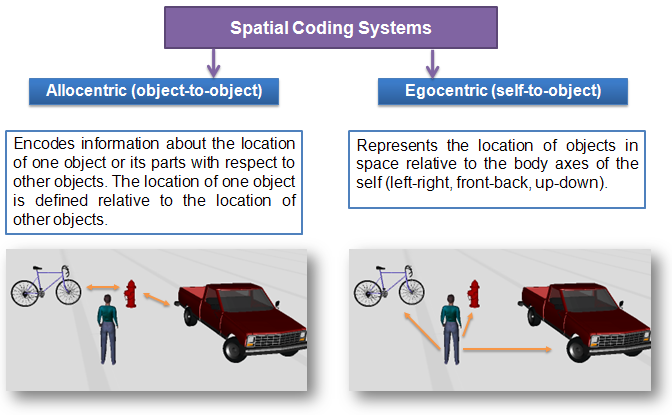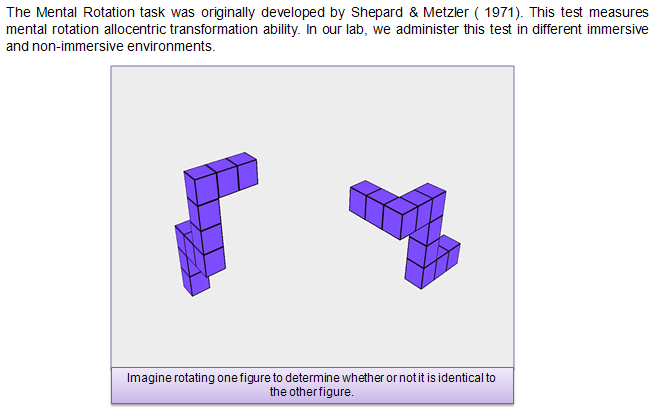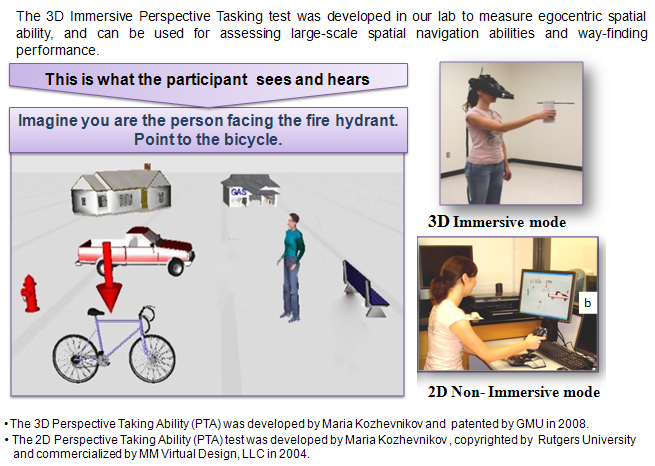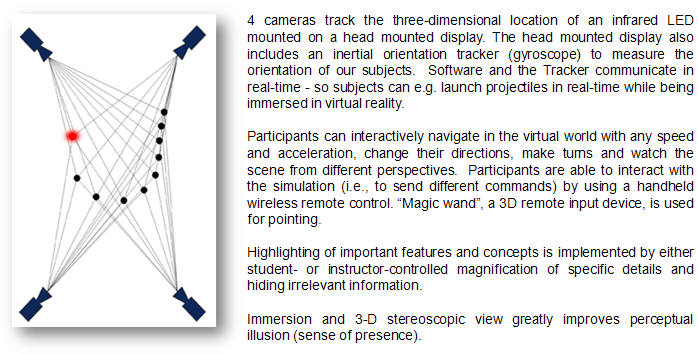Mental Imagery and Human-Computer Interaction Lab
Neural and Behavioral Correlates of 3D Visual-Spatial Transformations
Our research examines how different environments affect encoding strategies and choice of allocentric versus egocentric frames of reference
. We compared subjects’ performance on allocentric (e.g., Mental Rotation Task
) and egocentric (e.g., Perspective-Taking Task
) spatial tasks in non-immersive and immersive 2D vs. 3D environments. Our findings demonstrate a unique pattern of responses in the 3D immersive environment, and suggest that 3D immersive environments are different from 3D non-immersive and 2D environments, and that immersion is necessary to provide adequate information for building a spatial reference frame crucial for high-order motor planning and egocentric encoding. Furthermore, they suggest that non-immersive environments might encourage the use of more “artificial” encoding strategies in which the 3D image is encoded with respect to an environmental frame of reference, and in particular, to the computer screen. On the other hand, immersive environments
can provide the necessary feedback for an individual to use the same strategy and retinocentric frame of reference as he/she would use in a real-world situation.
We plan to further investigate the neural correlates of 3D visual-spatial processing in immersive virtual environments using EEG.



